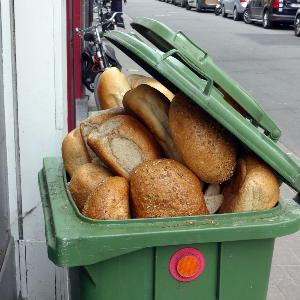Support for strict rules to combat food waste
22 Feb 2022
Vast quantities of food are thrown out every day. A survey shows that stricter government regulations would be accepted by the Swiss population.
22 Feb 2022
Vast quantities of food are thrown out every day. A survey shows that stricter government regulations would be accepted by the Swiss population.

A third of all food worldwide ends up in the garbage. | © imago images / isslerimages
A third of all food worldwide ends up in the garbage – a problem that the United Nations has put on its agenda. In this context, Switzerland has undertaken to halve its per-capita food waste by 2030. A representative survey by ETH Zurich, to which Dr. Lukas Rudolph from the Geschwister Scholl Institute of Political Science at LMU is a major contributor, now reveals: A majority of the Swiss population is in favor of stricter rules against food waste. The LMU political scientist, together with colleagues Thomas Bernauer and Lukas Felsenfeld from ETH Zurich, have just published the results in the journal Nature Food.
The survey had an experimental design, whereby various groups of respondents were presented with different rationales and regulations. It was the goal of the researchers to find out under what conditions people pronounce themselves in favor of strict rules against food waste. One of the findings was that the participants who were reminded of the social norm that one should not throw out food were more strongly in favor of government intervention.
“In our work, we also show that the attitudes of Swiss respondents to the responsibility of companies for a clean environment and to government regulation of corporate conduct in the environmental sphere are very similar to the attitudes of citizens in other developed countries, including Germany,” says Lukas Rudolph. “As such, we’d expect similar results for German respondents. Although an explicit study for the German context would of course be welcome.”
Fesenfeld L, Rudolph L, Bernauer T: Policy framing, design and feedback can increase public support for costly food waste regulation. Nature Food, February 10, 2022, doi: https://doi.org/10.1038/s43016-022-00460-8